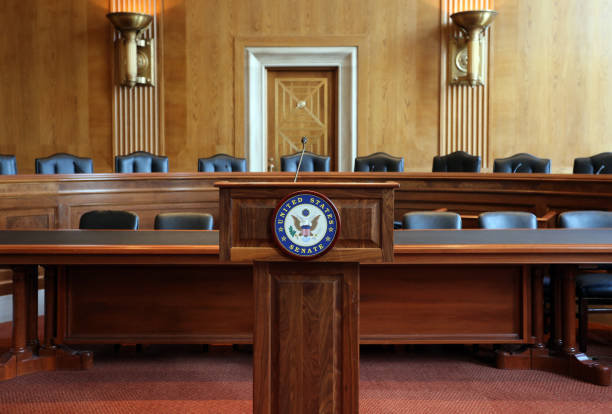A bipartisan Senate resolution to revoke former President Donald Trump’s global tariffs failed on Wednesday in a 49-49 tie, just hours after the U.S. government confirmed the economy contracted for the first time in three years due to tariff-related disruptions.
With only three Republicans siding with Democrats, the resolution fell short of the simple majority needed to pass. It aimed to terminate the national emergency Trump had declared as justification for imposing 10% tariffs on global imports and even steeper levies on 57 countries, including key allies like the European Union.
Senate Majority Leader John Thune swiftly moved to block any further attempts at reconsideration, calling in Vice President JD Vance to cast a rare tie-breaking vote to table the resolution permanently. That second vote passed 50-49.
“Leader Thune and Senate Republicans tonight voted to keep the Trump tariff-tax in place. They own the Trump tariffs and higher costs on America’s middle-class families,” said Senate Democratic leader Chuck Schumer.
The resolution was sponsored by Democrat Ron Wyden and co-sponsored by Republican Senator Rand Paul. It also received support from Republican Senators Susan Collins and Lisa Murkowski. Two expected backers—Republican Senator Mitch McConnell and Democrat Sheldon Whitehouse—were absent, preventing the resolution from gaining traction.
“It’s not perfect. I think it’s too broad. But it sends the message that I want to send—that we really need to be far more discriminatory in imposing these tariffs and not treat allies like Canada the way we treat adversaries like China,” Senator Collins told reporters.
Earlier in April, a similar measure to end tariffs on Canada passed with bipartisan support in the Senate but was blocked in the Republican-controlled House. Republicans currently hold a 53-47 Senate majority.
The vote came the same day the Commerce Department reported that U.S. GDP shrank at an annualized rate of 0.3% in the first quarter of 2025—its first quarterly decline since Q1 of 2022. The contraction was driven by a spike in imports as businesses rushed to avoid rising costs from tariffs.
Despite these economic warnings, the White House reiterated on Monday it would veto any resolution to reverse Trump’s trade policies, arguing such a move would undermine national and economic security.




